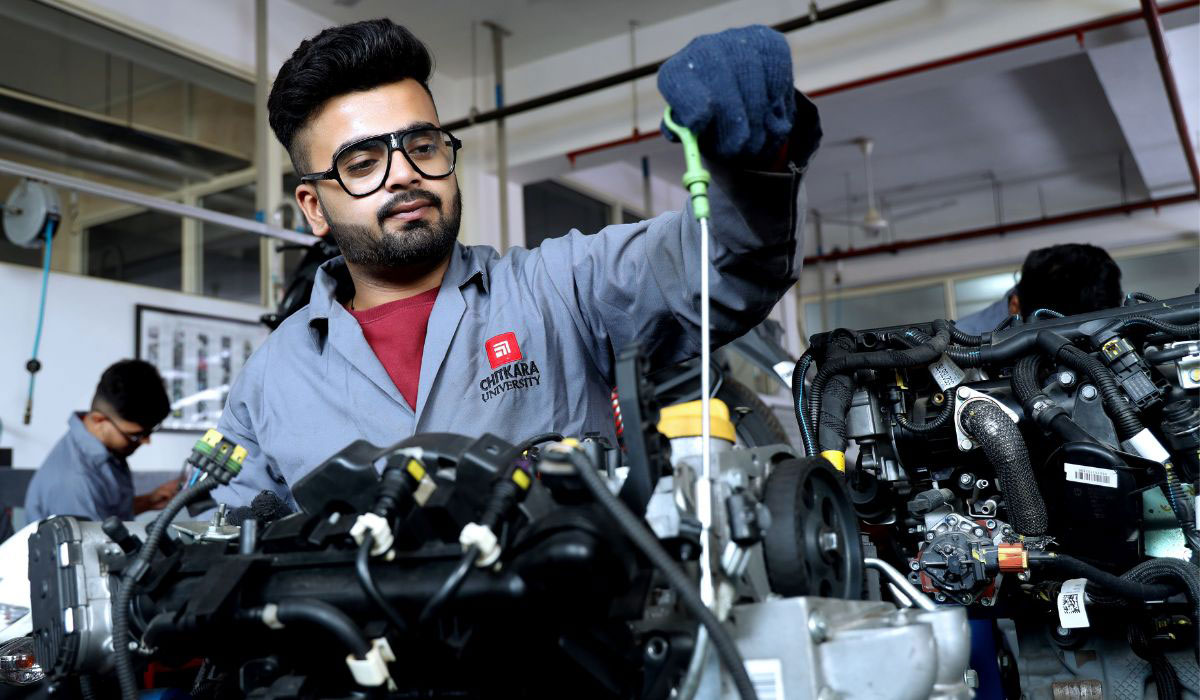Mechanical engineering is a dynamic area that includes a wide range of specialist specialties. Understanding the many forms of mechanical engineering not only broadens perspectives, but it also assists students and professionals in determining the best path within this intricate topic. Let’s look at seven different forms of mechanical engineering, each with its own set of advantages and disadvantages.
Mechanical Engineering: Mechatronics Engineering combines mechanical, electrical, and computer engineering to create smart systems and novel solutions. This multidisciplinary discipline combines robotics, automation, and control systems to prepare students for employment in robotics design, automation technology, and advanced manufacturing.
Biological and Mechanical Engineering: Mechanical concepts are applied to biological systems in biomechanical engineering. It entails creating prostheses and medical equipment as well as understanding how mechanical forces influence the human body. This specialty is for people who are interested in healthcare technology and want to contribute to developments in medical equipment and rehabilitation technologies.
Aerospace Engineering: The design of airplanes, spacecraft, and associated systems is the focus of aerospace engineering. Aerodynamics, propulsion, and structural design are all topics covered by students in this subject. It provides employment prospects in the aviation and space industries, with initiatives spanning from airplane manufacture to space research.
Energy Systems Engineering: Energy Systems Engineering is concerned with the development of long-term energy solutions. It include developing renewable energy systems, improving power generation, and investigating alternate energy sources. Graduates help to addressing global energy concerns by working on solar, wind, and hydroelectric power projects.
Automotive Design: Vehicle design, development, and manufacture are the focus of Automotive Engineering. Students study automotive systems such as engines, drivetrains, and vehicle dynamics. This specialty is designed for students who are interested in the automotive sector and want to contribute to the growth of electric and driverless cars.
Engineering in Robotics: The study of robotics engineering focuses on the design and development of robots and automated systems. It includes topics like machine learning, computer vision, and sensor technologies. Graduates are creating the future of robotics in fields such as manufacturing, healthcare, and research.
Materials Engineering: The study of the characteristics and applications of diverse materials is the focus of Materials Engineering. It entails the investigation and development of innovative materials for many sectors, such as nanotechnology, biomaterials, and composite materials. This expertise is critical in expanding technology in a wide range of industries, from electronics to construction.
Finally, the field of mechanical engineering provides a rich tapestry of specializations, each with its own set of problems and possibilities. Understanding various forms of mechanical engineering is critical for students and professionals navigating their career pathways within this dynamic and inventive sector, whether it’s digging into robots, inventing sustainable energy solutions, or transforming healthcare technologies. Aspiring mechanical engineering students can investigate these many fields in order to identify their expertise and make a meaningful contribution to the growth of technology and society.
Read this blog post: Where Do Mechanical Engineers Work? A Comprehensive Guide
Chitkara University’s 4-year B.E. in Mechanical Engineering stands as a comprehensive program poised to shape adept engineers capable of navigating diverse career trajectories. This program serves as a gateway to an array of professional paths, ranging from Mining Engineer and Water Engineer to Aerospace Engineer, Mechanical Engineer, Automotive Engineer, Maintenance Engineer, and CAD Technician. Its meticulously structured curriculum blends theoretical understanding with practical application, ensuring graduates are well-prepared for the multifaceted demands of the industry.
One of the program’s distinguishing features is its mandatory industrial training, lasting from 6 months to 1 year, enabling students to gain invaluable real-world exposure within blue-chip corporations. Moreover, the program facilitates campus recruitment, offering promising placement opportunities in esteemed Fortune 500 companies, facilitating a seamless transition from academia to industry for graduates.
The curriculum progresses systematically, commencing with foundational courses in Applied Sciences and progressing to core mechanical subjects. Students delve into a myriad of areas including energy systems, fluid mechanics, thermodynamics, and materials science. In the final year, students engage in a systems-level design course, capstone design experience, and elective programs, empowering them to deepen their technical expertise and expand their career horizons.
A unique aspect of this program is the provision for students to undertake a minor in Computer Science Engineering (CSE) from the second semester onward. This option equips future mechanical engineers with essential coding skills, opening avenues not just in core mechanical firms but also in top IT companies. Furthermore, specialized clubs like the Society of Automotive & Aerospace Engineers (SAE) provide practical exposure through events like SAE -Baja, Aero-Designing, and Robotics championships, fostering a dynamic learning environment.
In essence, Chitkara University’s B.E. in Mechanical Engineering is a holistic program that not only imparts academic knowledge but also cultivates practical skills and industry-aligned expertise. It equips graduates with a versatile skill set, preparing them to excel in diverse roles within the dynamic and ever-evolving landscape of engineering.






